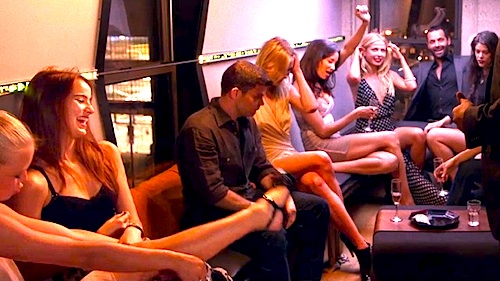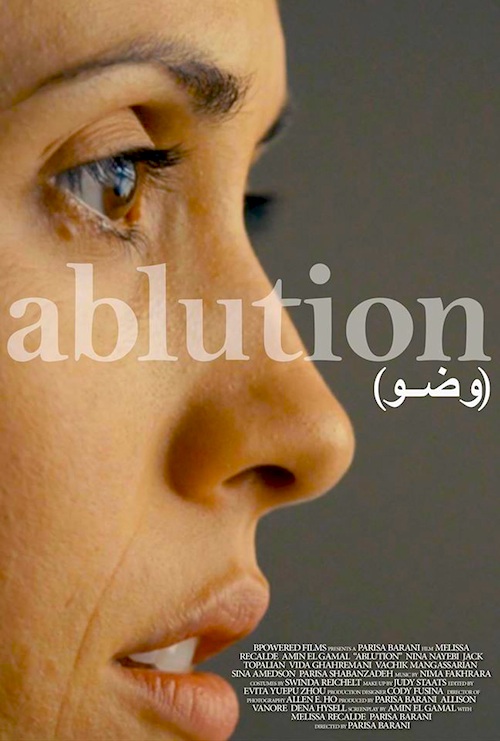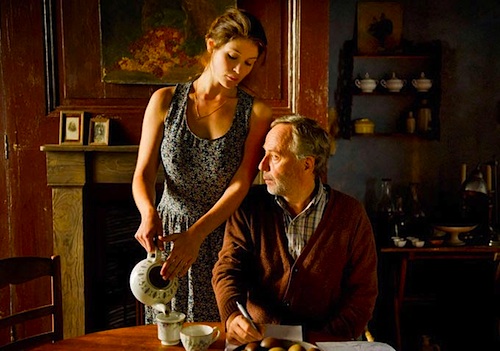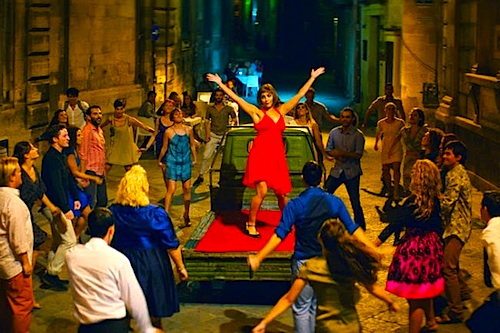By Joe Bendel. This could be the Korean Rom-Com Sigmund Freud never had the chance to write. It’s all about dreams, suicide, and overbearing mothers. Yet, the vibe is feathery light and strangely sweet throughout Lee Kwang-kuk’s A Matter of Interpretation, which screens at the 2015 Seattle International Film Festival.
With not one single solitary ticket buyer ponying-up for the matinee performance, Choi Yeon-shin pulls a vintage diva move, storming out of the avant-garde play, after giving her fellow cast-members a good piece of her mind. Unable to convince her friends to come meet her, Choi starts pounding the Soju by herself, on a park bench. Detective Seo will start to roust her, but they wind up talking instead.
Not so good with CSI sort of stuff, Seo fancies himself an interpreter of dreams. Choi happened to have a rather baffling one the night before. Remember that crummy white compact car, because it will turn up in other people’s dreams and also in ostensibly real life, often carrying the implements used in the suicide Seo was investigating before meeting Choi.
Structurally, Interpretation is a time-warping, reality-problematizing Borgesian puzzle box of a film, with events in waking life repeating dreams, repeating life, repeating dreams. Lee’s film is a feat of reprise and variation, echoing line after line and incident after incident, but giving each new take its own sly twist. He addresses some dark subject matter (after all, somebody ended it all in the white car), but keeps the mood upbeat and playful.

As clever as Lee’s screenplay is, it is Shin Dong-mi who makes it sing. Even Det. Seo notices how well her Choi curses—with style and attitude rather than cheapness. It is a gutsy sort of part to play—the still attractive but past her professional prime actress struggling with life’s disappointments. She nails it will a dynamite performance that is sexy and sarcastic, yet kind of-sort of down-to-earth.
Yu Jun-sang nicely plays with and off her as the preternaturally unintuitive detective, while Kim Gang-hyeon is believably nebbish as her ex-boyfriend, Shin U-yeon. However, young Kim Dan-yool thoroughly upstages the latter in his brief but memorable scenes as the boy whose street art both Choi and Shin appreciate far more than his tiger mom.
Every scene in Interpretation rings with call-backs and foreshadowings, but it never feels forces or excessively gamesterish. In fact, it goes down quite smoothly, ambling along at its own pace—a healthy trot, really—representing a considerable step up (particularly in terms of tempo) from Lee’s already impressive feature directorial debut, Romance Joe. Highly recommended, A Matter of Interpretation screens this Thursday (5/28), Friday (5/29), and Sunday (5/31), as part of this year’s SIFF.
LFM GRADE: A
Posted on May 29th, 2015 at 9:25pm.




